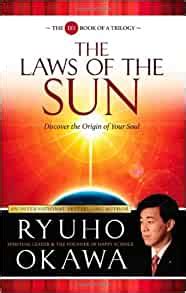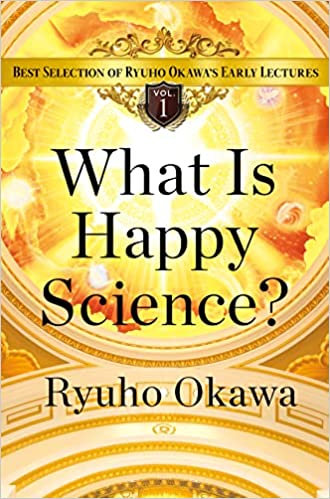happiness that goes through this world and the other world - Free creativity of human beings - Search for the right mind
Sow and nurture seeds of happiness
April 2023
What is happiness?
IT has made it possible for people to contact each other immediately, at any time, from a distance, but the communication technologies that bring people together are also hindering the direct connection between people. And the Corona Disaster has enhanced this.
According to a study by Statistics Netherlands (CBS), 11% of the Dutch population aged 15 and over felt strongly lonely in 2021. We also heard news that there is a shortage of mental health professionals.
Happiness coaching by Happiness Coach was also featured on Dutch TV. It seemed to teach a method derived from a lot of data on how to improve relationships. An article of BBC NEWS by a business reporter (30 Sept 2021), contained criticism that 'the cost of this coaching is between 60 and 120 pounds an hour, so not everyone can afford it'. .
In the Science of Happiness, we think about happiness from the point of view of what it means to be human. Either there is a spiritual world or there is not, and no other conclusion is possible, but there are many reports demonstrating that there is a spiritual world. World religious leaders have made and reported some discoveries about the spiritual world. And since his spiritual awakening in 1981, Master Okawa has been interacting with the spiritual world ever since. So for him, the existence of the spiritual world was a very natural thing.
In contrast to the so-called theories of happiness in the world, which only talk about this world, Happy Science teaches a happy way of life not only from the perspective of happiness in this world, but also from the perspective of the other world. It is a 'happiness that goes through this world and the next'. The basic idea is that human beings are born into this world in order to learn something, and that they return to the real world, their original world, with what they have learnt there.
In his numerous books, the Master has described from various angles how to achieve 'happiness that goes through this world and the other world'.
Existentialism and faith
Simone de Beauvoir, a French writer, and thinker and one of the representatives of existentialist literature, wrote in her book “The Second Sex” (1949): ‘One is not born, but rather becomes, a woman'.
Her lifelong companion was Jean-Paul Sartre, the standard-bearer of 20th century existentialism, who held that 'existence precedes essence' and that human existence (being) is something we choose for ourselves, rather than existing for something predetermined. He believed that we find the meaning of our own life by throwing ourselves into a given situation, accepting responsibility for the decisions we have made based on subjective judgements, while living within such responsibility.
Also, because human beings have no pre-set design (essence) or purpose, they are free, 'human beings are condemned to a sentence of freedom from which he cannot escape' (“What is Existentialism?”), thought Sartre.
In Ryuho Okawa's book “New Search for the Heart”, it is written:
"It is a recent trend to think that this world was created by chance, but in a sense, if we look at this from a long or broad perspective, we have to say that this is an abnormal way of thinking. Could chance create a human being? Could a human being evolve from an amoeba by chance? Human beings are like skyscrapers, 40 or 50 story high, with a purposeful structure. However, the current mainstream of evolutionary theory claims that humans are formed by a chain of coincidences, and that humans with their current body and spirit have been formed. In other words, concrete lumps, sand, gravel, blocks, rebar, and so on are lying around, the wind blows by chance, it rains by chance, the concrete is kneaded, and before you know it, the rebar is piled up, or in other words, the rebar is piled up by chance, by an earthquake or something, and then a skyscraper is built.
“Therefore, God as a first cause theory is also rational. Everything in the world has traces of being created. ..... Isn't it natural to think of God as First Cause?”
It would be true that we accept the responsibility for our own decisions and live in such responsibility. However, as humans tend to make decisions based on their own ego. We must consider the thoughts with which God created human beings and which world He wants us to create, and make decisions to achieve utopia.
"The Law of the Sun", written by Ryuho Okawa, states:

"Each person's life form, which you call a soul, is a lower-level manifestation of the fundamental God (Buddha) of a much higher dimension. ..... You yourselves are part of the consciousness body of the God (Buddha) and part of the manifestation of the God's (Buddha's) self-expression. ..... The first characteristic is the creative nature. The soul is endowed with the property of freely transforming itself according to its own will. In other words, you can decide for yourself what kind of thoughts you have in your conscious body. ..... You should be proud and confident that you are part of the God (Buddha) and part of his self-expression. This is the truth of the soul. Religions and advanced philosophies of the past have been passed down and developed in order to make people on earth realize this. The ultimate aim of the natural and space sciences, which are currently making great progress, is to reveal this truth of the soul."
There must be some purpose for God (Buddha) to have created human beings and to have created us as male and female. First, let us accept that we exist as human beings, that we were born male and female. And from there, let us all strive for utopian where each person can live freely while caring for others.
Is the free creativity of human beings a wonderful trait given by the God (Buddha) to the human soul, which is a part of it? Or is it a painful 'sentence of freedom'? Which can live happily, a person with free creativity, who is directed towards God (Buddha), towards an ideal world, or a person who is forced to be free without knowing where to go?
Starting point for happiness
In the book 'Best Selection of Ryuho Okawa Early Lectures vol1 What is the Science of Happiness?' (Chapter 2: What is the Science of Happiness?), he speaks about happiness as follows.

'Happiness and unhappiness are not fatalism. ..... What makes happiness and unhappiness is the way you think and the way you make decisions at the present moment. This is what creates it. ..... When you control your own mind as a real experience, you will know that "the way is open" for the first time. ..... How much of a wasted life, how much of a life of loss, is being lived without knowing this 'power of thought' and 'law'? It is not merely a loss. It involves other people too."
The 'search for the right mind' ultimately means: 'First of all, look carefully at the movements of your own mind throughout the day. If you find that the needle of your mind is moving in the wrong direction, in a hellish direction, immediately turn this needle back. Point it towards heaven.'
Correcting one's own mind is called 'seeking the right mind'.
Train yourself to turn the needle of your mind towards heaven every single day. Realize that steering the mind is just like steering a car, and learn how to control your mind.
The fourfold path (love, knowledge, reflection and development) are the specific goals of the 'search for the right mind'. This can be described as being like the way of driving that you learn in driving school.